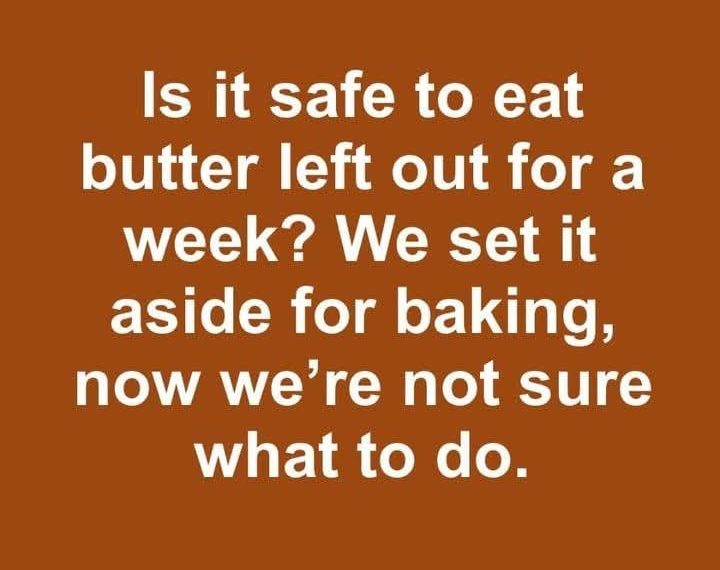Butter is a beloved kitchen staple, valued for its rich flavor and versatility in both cooking and baking. But what happens if you forget to put it back in the fridge and it sits out for a whole week? Is it still safe to eat—or should you toss it? Let’s break down the science and safety behind butter storage so you can make the right call.
🧈 Understanding Butter’s Composition
Butter is mostly fat, with a small percentage of water and milk solids. This high fat content means it generally lasts longer than other dairy products. That’s why some people feel comfortable leaving it out in a butter dish for easy spreading.
- Salted butter: The salt acts as a natural preservative, slowing down bacteria growth.
- Unsalted butter: More vulnerable to spoiling because it lacks salt protection.
🔬 The Science of Spoilage
Butter can go bad in two main ways:
- Bacterial or mold growth → can cause foodborne illness.
- Oxidation (rancidity) → makes the butter taste and smell off, though rancid fat is more unpleasant than harmful.
Heat, light, and air exposure all speed up spoilage.
🌡️ Factors That Affect Shelf Life at Room Temperature
How long butter can sit out safely depends on several conditions:
- Room temperature: Cooler homes may keep butter fresher longer, while warmer environments speed up spoilage.
- Type of butter: Salted lasts longer than unsalted.
- Storage method: Covered butter (in a butter bell or crock) is better protected from air and contaminants than butter left uncovered.
In general, food safety experts say butter may be fine at room temp for a couple of days, but a week is too long—especially if it wasn’t stored properly.
⚠️ The Risks of Eating Butter Left Out Too Long
- Spoiled butter can contain harmful bacteria or mold.
- Rancid butter isn’t usually dangerous, but it will taste bitter and unpleasant. Using it in baking can ruin the flavor of your recipe.
Signs butter has gone bad include:
- A sour or funky smell
- Discoloration (yellow turning darker, or spots of mold)
- A soapy, bitter, or strange taste
🥶 Safe Butter Storage Tips
- Always store butter in the refrigerator for maximum freshness.
- If you like soft, spreadable butter, only take out a small portion and keep the rest chilled.
- Use a covered dish, butter bell, or crock to protect butter from air and contaminants.
- For long-term storage, butter freezes well—wrap it tightly and use within several months.
🧈 Alternatives If Your Butter Is Unsafe
If you discover your butter was left out too long, don’t risk it. Instead, use:
- Fresh butter (the safest choice)
- Margarine or plant-based spreads (good substitutes for baking and cooking)
- Oils (like coconut or olive oil) depending on the recipe
✅ Final Word
Butter can survive at room temperature for a short time, but a week is pushing it—especially if your kitchen is warm or if the butter was unsalted. For your health and the quality of your cooking, it’s best to play it safe and discard butter left out that long.
By practicing smart storage habits, you’ll ensure your butter stays fresh, flavorful, and safe to use—whether you’re baking cookies or making the perfect piece of toast.





